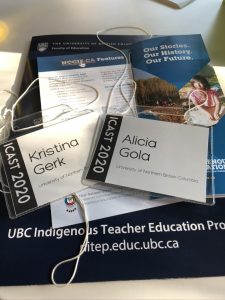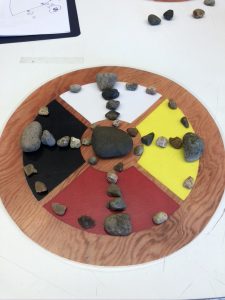Standard 9
Standard 9: Educators respect and value the history of First Nations, Inuit, and Metis in Canada and the impact of the past on the present and the future. Educators contribute towards truth, reconciliation and healing. Educators foster a deeper understanding of ways of knowing and being, histories, and cultures of First Nations, Inuit and Metis.
A big part of my education pursuit is from my experience in the Northwest Territories. I spent the first three years’ post-undergraduate degree working at the local K-12 school just south of the Great Slave Lake. I worked slowly and learned from educators and elders that were working tirelessly to revitalize the local language and continue to integrate their culture back into the school. I met and talked with residential school survivors and learned about the impact this has on the current generation of students. As educators, we worked with the local Metis President and Treaty Chief to organize regular culture camps with students. This community became a large part of my identity as I learned and experienced so much about their rich history by dogsledding, coaching Hand Games, fishing, trapping, hunting and making bannock.

The name tag I wore for ICAST at UBC.
My knowledge of Indigenous, Metis, and Inuit culture is always in need of further understanding. To educate myself on these cultures, I attended ICast at UBC, where I gained phenomenal resources and ideas to accurately integrate First Nations, Inuit, and Metis teachings into my classroom.

The Medicine Wheel I created during the SD57 Professional Development Medicine Wheel: A Gift of our Ancestors session.
I also attended the School District 57 Indigenous Education themed Professional Development, going to workshops Using Experiential and Place-Based Learning in Secondary Science and The Medicine Wheel: Ancient Gift of the Ancestors. The speakers Jordan Tootoo and inspired Waneek Horn Miller stories, inspired me to integrate Indigenous practices to help and inspire all students.